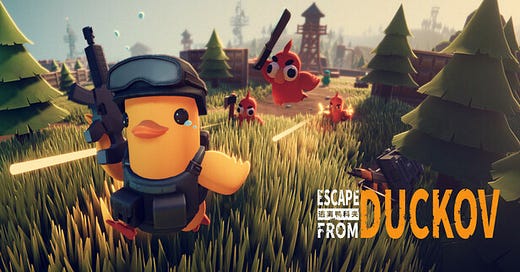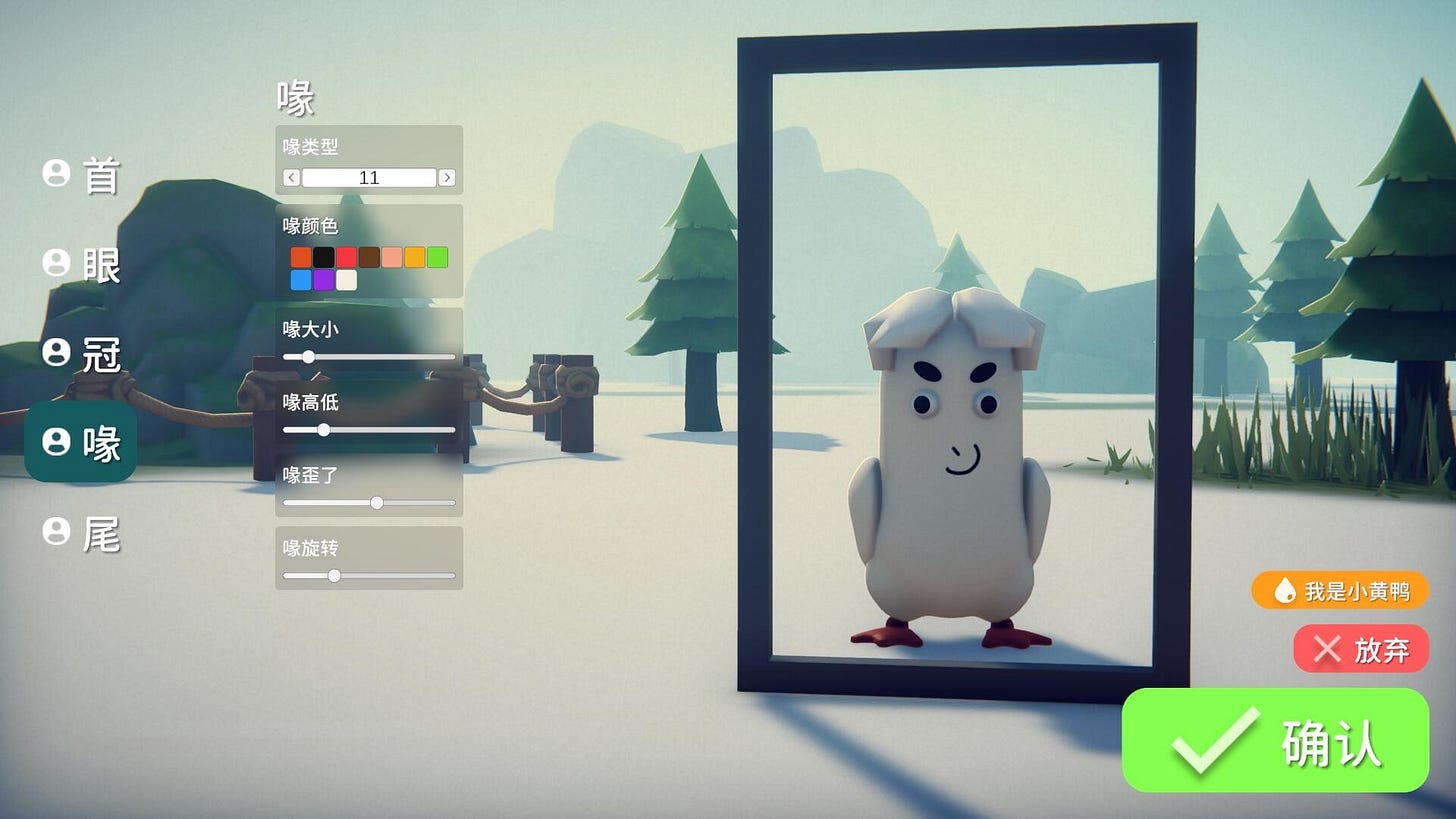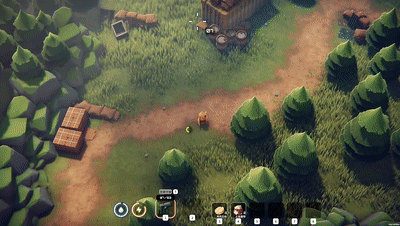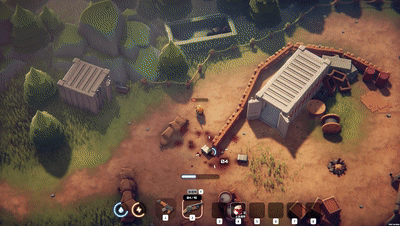What the Duck? How Escape from Duckov Earned Over 150K Wishlists
How a small team used community engagement, localization, and clever positioning to take over Steam.
How does an indie game about ducks, loot, and extraction mechanics inspired by Escape from Tarkov gain over 150,000 wishlists on Steam? The answer isn’t just because its a ducking1 good time. Escape from Duckov leveraged clever marketing strategies, a unique approach to community engagement, and an experimental use of Steam’s demo system to skyrocket in popularity.
What initially drew me to Escape from Duckov was how incredibly fun and marketable the game looked, combined with the fact that it was made by a small 4 man team. The unique premise, humor, and absurdity of a Tarkov-inspired shooter featuring gun-wielding ducks made it stand out instantly. This blog explores Escape from Duckov’s marketing playbook, analyzing what worked, what stood out, and what game developers can learn from its success.
Data Source
The data used in this analysis is sourced from third-party platforms GameDiscoverCo and Gamalytic.
What is Escape from Duckov?
At its core, Escape from Duckov is a humorous extraction shooter that parodies Escape from Tarkov. Instead of the gritty realism that Tarkov is known for, Duckov injects absurdity into the formula, placing players in a beautiful world of gun-wielding ducks. The game’s combination of familiar gameplay mechanics with a completely unorthodox theme made it highly marketable from the outset. The meme potential alone was enormous, giving it an immediate advantage in capturing player curiosity. With only a few seconds of gameplay and the name alone, players know exactly what to expect from the game.
Escape from Duckov is published by Bilibili, a massive Chinese video-sharing and gaming platform that caters to anime, comic, and gaming fans. In recent years Bilibili has expanded into game publishing, helping local and international developers reach Chinese audiences. Due to my lack of Chinese fluency it was difficult for me to determine specific areas they helped Escape from Duckov’s marketing, but their instant access to a huge amount of gamers certainly helped with exposure. Bilibili also partners with Western studios to bring their games to China, such as with Core Keeper.
Escape from Duckov was developed by Team Soda, a small four person indie studio based in China. Team Soda has also released successful titles, Soda Crisis (2022) and Snake Force (2021). It’s clear they’ve leaned into their strengths with all three games having similar art styles and mechanics. It’s worth noting that Snake Force was the product of a game jam and released on Steam for free. Given the success of Snake Force i’m willing to bet it helped snowball a following for their future games. It’s also impressive they’re on track to release 3 polished and well received games in a 4 year time span with only 4 devs! Team Soda is exactly the kind of small but mighty indie team I love to see.
How Did They Get Over 150,000 Wishlists?
Community Management
One of the strongest aspects of Escape from Duckov’s marketing strategy was its ability to engage with it’s community. The team leaned heavily on social media, particularly Bilibili, which dominates gaming content in China. They also had a presence on Rednote, another popular Chinese social media. Though their Discord setup was minimalist, it included dedicated text channels for different languages, allowing international players to feel included.
They also encouraged user generated content (UGC) in creative ways. One of the biggest campaigns was a duck design contest, where players submitted their in game custom made ducks. This led to a wave of UGC and engagement, as players enthusiastically shared their bizarre and hilarious creations.
Beyond direct marketing, Jeff, the team’s most visible developer, became an integral part of community engagement. He frequently appears in updates and community discussions, creating a personal connection with players. The team even leaned into his public presence in their marketing, going so far as to joke in a Steam announcement that, “Hi, everyone! I’m Ducky! Jeff is currently in my hands, so hurry up and enter the world of Duckov to rescue him! (Just kidding!)” His presence in the game’s announcements, as well as his established Bilibili following, helped create an informal yet powerful spokesperson for the game. This type of self-aware, lighthearted engagement builds personality around the dev team, making them feel more accessible and fun to their audience. Similar strategies have been used by larger companies, such as Riot Games with figures like Mortdog in Teamfight Tactics promotions.
The developers also set themselves apart by being extremely transparent with their community. They openly discussed their challenges, stress, and even last-minute decisions made by their publisher. When major bugs arose, they leapt into action and posted public tutorials on how to fix them. They also wrapped up their demo with a Steam FAQ post where they answered common questions, addressed major bugs found in the demo, and discussed future plans. This kind of openness made the development team feel human, relatable, and worth supporting.
The Steam Demo/Playtest Strategy: Breaking the Rules
Escape from Duckov’s first playtest took place in December 2024 on the Chinese gaming site WeGame. From there on things took an interesting turn.
Most indie developers on Steam who want to run a playtest turn to Steam’s Playtesting features to host their playtests and make it easily accessible for players. However, Escape from Duckov took a different approach, choosing to use Steam’s Demo features while still referring to and treating it as a playtest. This decision had significant implications. While Steam Playtest requires sign-ups and approvals (this can be automated as well), demos are instantly accessible to any player. Moreover, Steam’s algorithm heavily favors demos, which lead to Escape from Duckov being featured on the front page of Steam in the Trending Free widget.
The results speak for themselves. The demo had a peak concurrent player count of 3,157 and maintained over 1,000 daily concurrent players while it was live. More impressively, the game’s wishlist count skyrocketed by 115,551 and had an average daily wishlist rate of 4,622 during the demo period (January 24 - February 17).
For indie developers considering a similar approach, this raises an interesting takeaway: using a demo as a playtest might be a better move if visibility and accessibility are the priority.2 I’d only recommend this strategy if you’re pretty confident your demo/playtest build is polished and as bug free as possible. Expectations of demos are definitely higher than playtests. It also only makes sense for a demo meant to be live for only a short amount of time. If you’ve done this strategy yourself leave a comment or shoot me a DM, i’d love to hear about it!
Press & Content Creators: Reaching Global Audiences
While Escape from Duckov primarily found success in Asia, the game didn’t stop there. Major gaming press outlets, including IGN and GamesRadar, picked up on the game’s unique premise and growing popularity. IGN featured 24 minutes of gameplay footage, while GamesRadar ran a piece calling it “one of the hottest demos on Steam right now.”
Search Escape from Duckov on Youtube or Tiktok and you’ll find dozens of creators from around the world who also posted videos during the game’s demo period. Press articles & influencer videos helped expand the game’s reach to Western audiences, generating further interest and wishlists.
Localization: Speaking Players Language
From the outset, the developers made localization a priority, translating the game into English, Simplified Chinese, Traditional Chinese, and Japanese. More importantly, they tailored their marketing efforts to different regions. Chinese-focused content was pushed on Bilibili and Rednote, Japanese audiences were targeted through Twitter, and English-speaking players were engaged via Steam and Discord.
The results were clear. China accounted for 31.9% of wishlists, followed by Japan at 9.4%, Taiwan at 6.9%, and the USA at 5.6%.
Localize your game into any language you think may be relevant! If you have no idea where to start check out the Steam Hardware & Software Survey. The one for January shows the top 5 languages as:
English
Simplified Chinese
Russian
Spanish
Portuguese
Localizing your steam page is super easy nowadays. You can pay a professional but if your tight on money I would recommend using google translate and getting a friend who speaks the language to double check nothing is super off. Team Soda was upfront about using translation software in their Steam announcements and apologized upfront for any mistranslations.
If your game is unreleased its perfectly fine to translate the steam page and plan to localize the game later. Get those wishlists now and worry about translation later. The only exception to this is if your working on a very text heavy game and aren’t sure you can actually afford to localize your game in the end. You may be in tight spot if you ship a text heavy RPG game that you promised would be translated in Chinese that's only available in English. This is especially true if players buy the game only to find out they can’t understand it. That’s a fast track to returns and bad reviews.
Here's a great write up on Reddit showing how localizing their game helped them reach 90K wishlists.
What Can Indie Devs Learn?
The success of Escape from Duckov wasn’t just a lucky break, it was the result of a team that understood exactly what made their game special and how to communicate that to players. From the start, they leaned into the game’s absurd, highly marketable premise and built excitement through community-driven content. They weren’t afraid to be playful, involving fans in the fun while keeping communication open and engaging. Every decision, from how they positioned their game to how they interacted with their audience, reflected a deep understanding of what would resonate with players. For developers looking to carve out a space in an increasingly crowded market, Escape from Duckov is proof that a strong identity, genuine engagement, and smart strategic choices can make all the difference.
Thanks for reading, i’m gonna go make my new game Duck Souls now.
Don’t worry I resisted the urge to fill this article with duck puns. Mostly.
Keep in mind you can only email blast your wishlists the first time you launch your demo.










